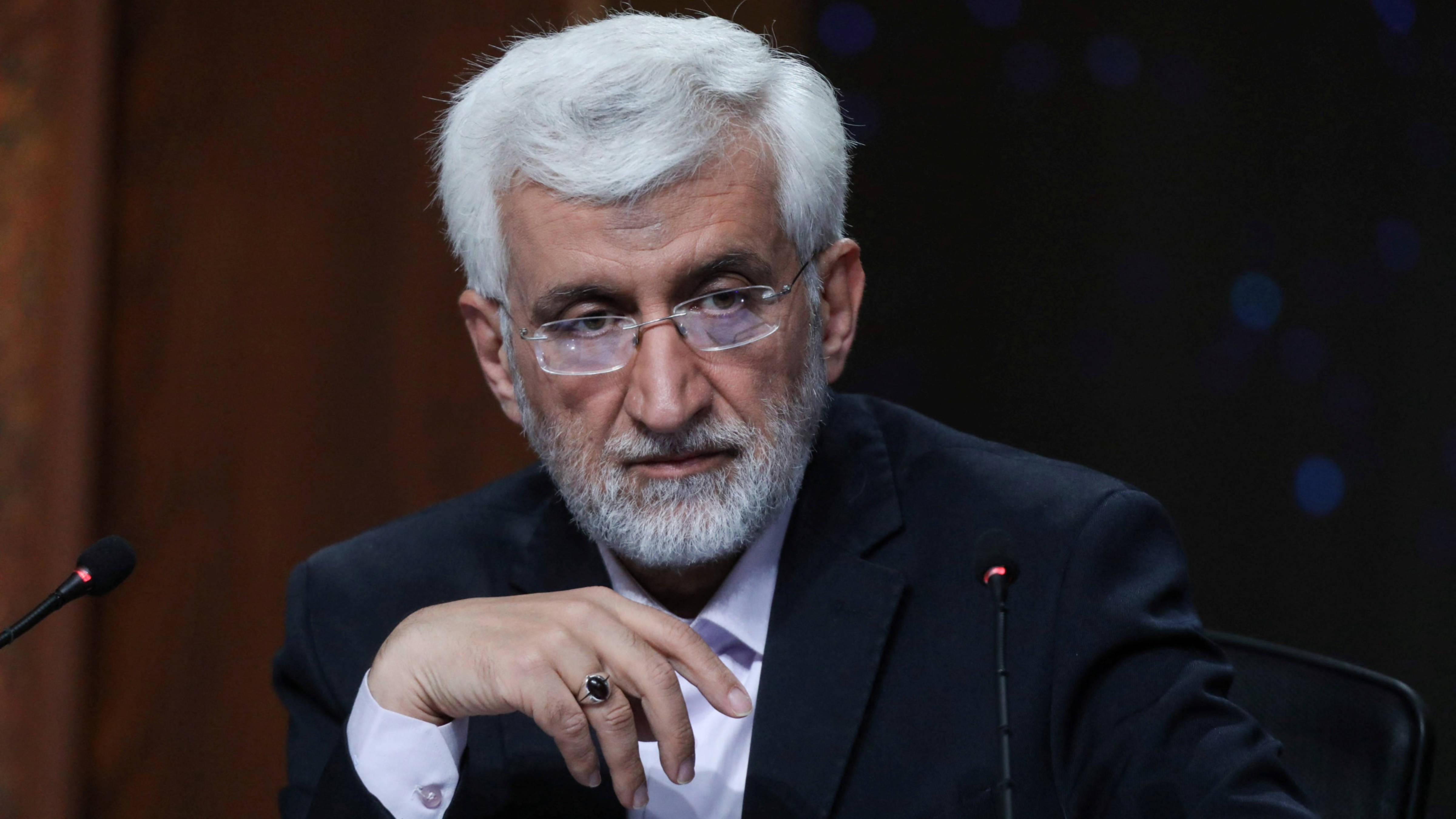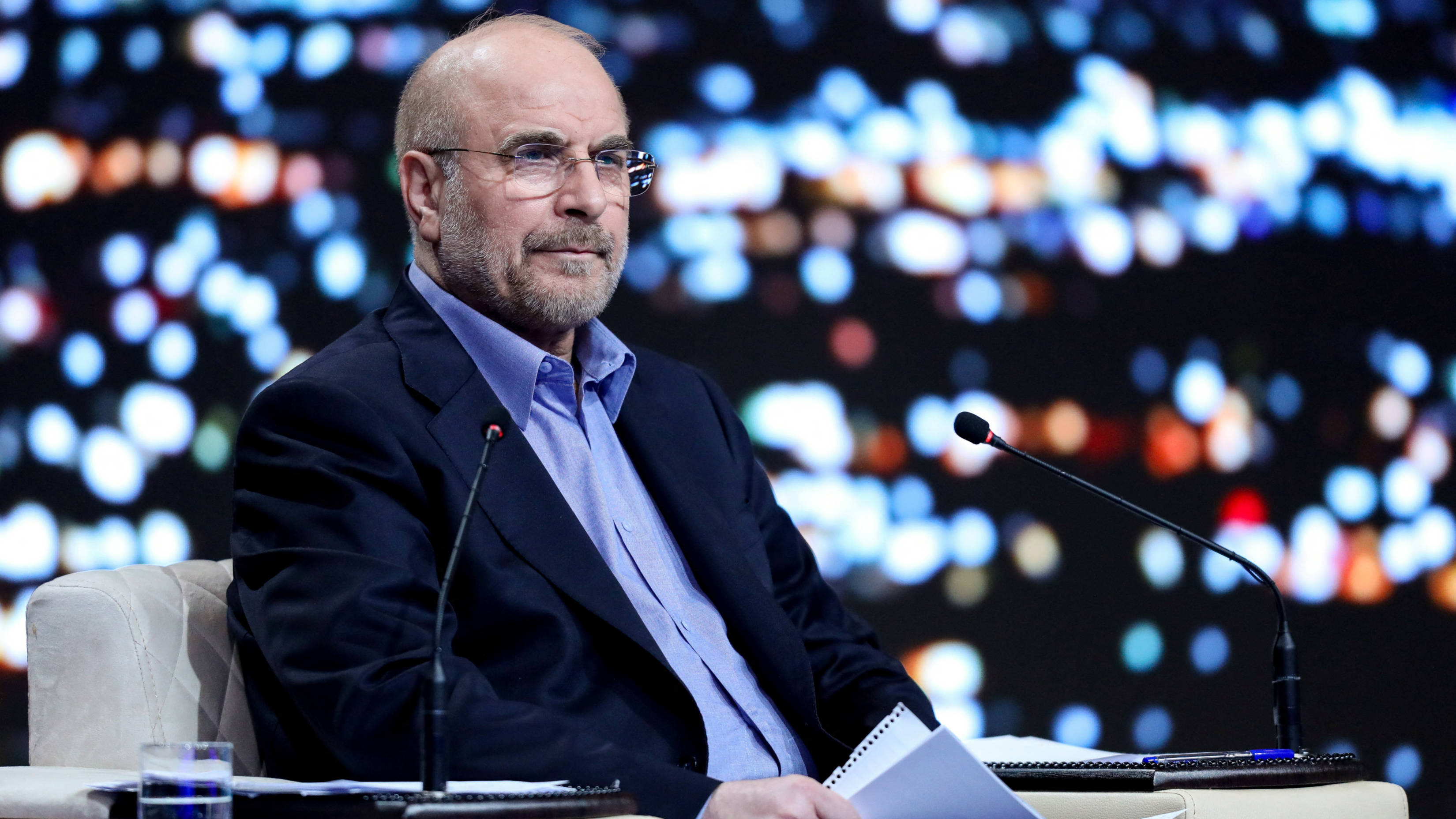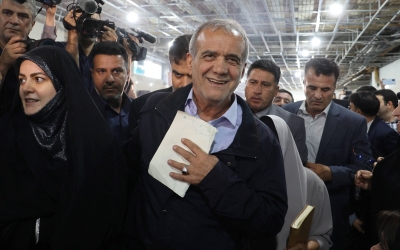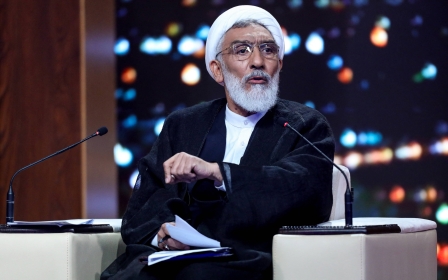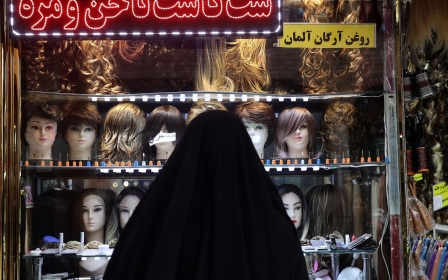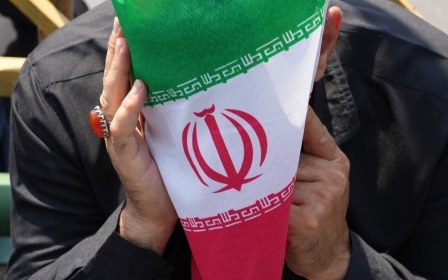Iran election: Inside the vicious struggle between the top conservative candidates
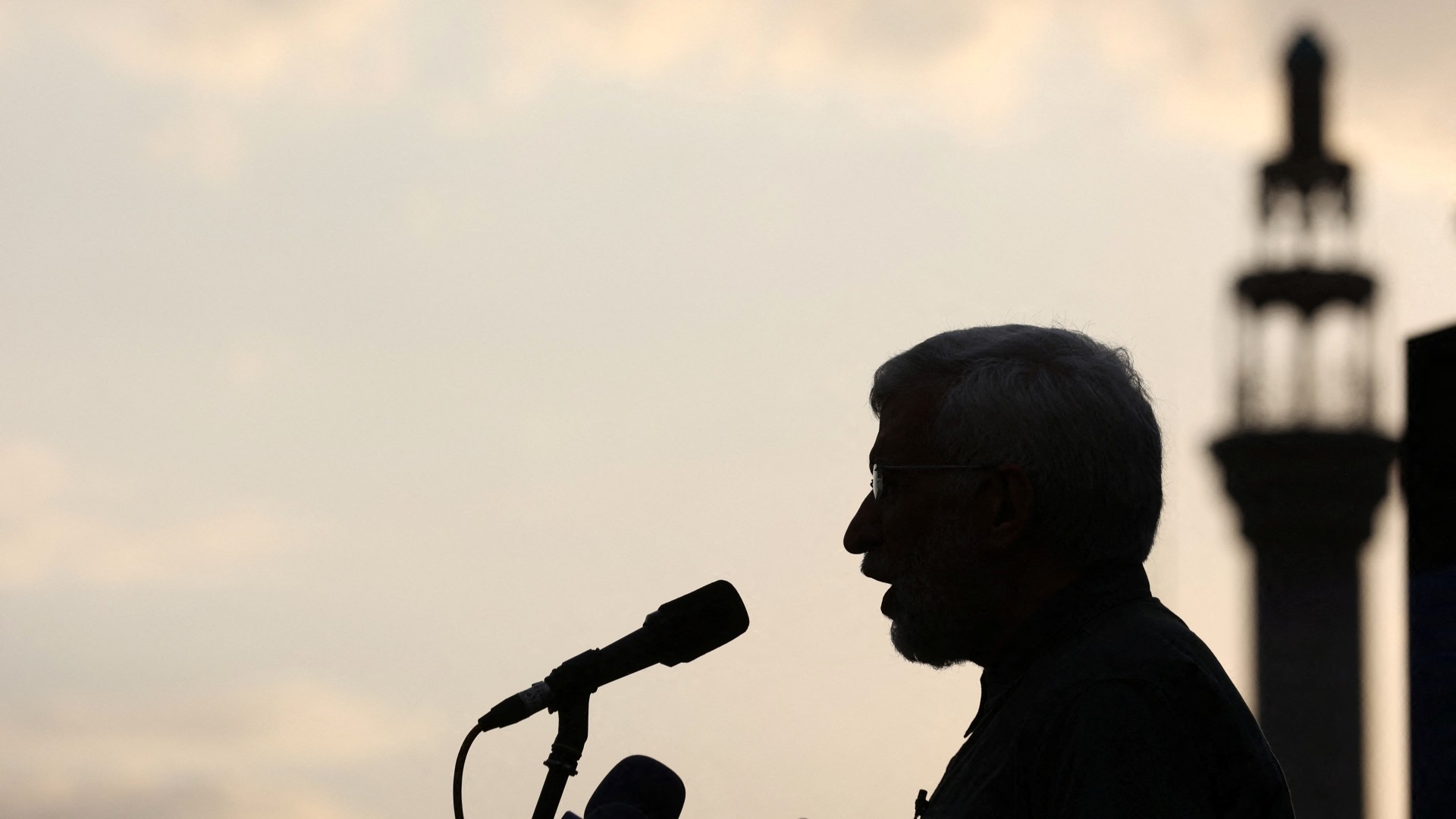
As the presidential race gains momentum in Iran ahead of election day, the conservative camp is mired in intense internal strife as its two key candidates, Mohammad Baqer Qalibaf and Saeed Jalili, vie for dominance.
While conservatives have fielded five candidates, strategic manoeuvring and loyalty battles are pushing some to consider last-minute withdrawals to consolidate support.
Jalili, a principlist former nuclear negotiator, and Qalibaf, a more moderate conservative, represent starkly different visions for Iran’s future.
Meanwhile, the sole reformist candidate, Masoud Pezeshkian, stands to gain from conservative infighting.
As contentious polls and behind-the-scenes power plays unfold, the outcome remains uncertain, reflecting broader tensions within Iran's political landscape.
New MEE newsletter: Jerusalem Dispatch
Sign up to get the latest insights and analysis on Israel-Palestine, alongside Turkey Unpacked and other MEE newsletters
In the few days ahead the elections on Friday, both conservative frontrunners are pressuring the other to withdraw, a move that could ultimately be in favour of the sole reformist candidate.
And while the real competition among conservatives is between Qalibaf and Jalili, the three other conservatives candidates - Mostafa Pourmohammadi, Ali Reza Zakani, and Amir-Hossein Ghazizadeh Hashemi - could play a role in the outcome.
Who are the candidates?
Many observers believe that Ghazizadeh Hashemi, the incumbent vice president, and Zakani, the mayor of Tehran, intend to support Jalili by withdrawing at the last minute. According to published polls, both Ghazizadeh Hashemi and Zakani have around one to two percent of the votes.
Speaking to Middle East Eye on condition of anonymity, a source in the conservative camp said that Zakani and Ghazizadeh Hashemi are both trying to demonstrate their loyalty to Jalili, in the hope that if he wins, they would be promoted or at least retain their current positions.
Meanwhile, Pourmohammadi, a former top security figure, has adopted more reformist positions and distanced himself from the conservatives. On the other side of the race, Pezeshkian is the first reformist candidate to be allowed to run in a presidential election in 15 years.
Jalili, the representative of Supreme Leader Ayatollah Ali Khamenei in the Supreme National Security Council of Iran, is a former dipolmat who holds ultra-conservative views on both domestic and foreign issues. He is particularly strict on internet and social freedoms, and his foreign policy is known to be hard-line and against any form of agreement with the US.
While running in the 2021 presidential race, Jalili declared that joining any international conventions and agreements is useless for the country. During his tenure as chief negotiator (2007-2013), Iran's nuclear talks with the West resulted in four heavy and punitive UN Security Council resolutions passed against Iran, with China and Russia voting in favour.
On the other side, Qalibaf, the current parliament speaker, is a former police chief, ex-commander of the air force, and former Tehran mayor.
The former general is a conservative with moderately progressive views, to some extent. He believes in negotiations with the West and, in 2013, had plans to name former foreign minister Mohammad Javad Zarif as his top diplomat if elected in the presidential race.
In 2017, Qalibaf was accused of being involved in a bribery, embezzlement and fraud scheme involving the Tehran municipality.
Campaign strategy
Jalili's supporters are ultra-conservatives who view Qalibaf as insufficiently loyal to the values of the Islamic Revolution. They see him as a liberal disguised in religious and conservative garb, willing to cross all red lines, including talking with the US. They also believe he is corrupt and would tarnish the image of conservatives and the religious class.
Meanwhile, Qalibaf's supporters see Jalili as a reactionary figure in both domestic and foreign policy. They think Jalili would further isolate Iran as he lacks realistic views.
In recent days, three polls published by institutions close to Jalili show him gaining more votes than Qalibaf and Pezeshkian.
The first poll was published by the Iranian Students Polling Agency, whose head is appointed by the government. The second was published on Press TV's website, run by Mahdi Khanalizadeh, a senior member of the government’s media team. The third poll was produced by state broadcaster IRIB, which is controlled by Jalili's brother, Vahid.
According to an editor of a reformist daily, who spoke to MEE on condition of anonymity, the publication of these "fabricated polls" is part of Jalili's campaign strategy and serves two important goals.
'If Qalibaf withdraw, at least 40 percent of his supporters would vote for Pezeshkian as they fear Jalili's domestic policies and dead-end foreign policy'
- Conservative source
The first is to influence key institutions and the establishment, ultimately forcing Qalibaf to withdraw in favour of Jalili. The second aim is to demoralise middle-class, undecided voters, and Pezeshkian's supporters, by making them believe they have already lost and no longer have a reason to cast their vote.
The conservative source said there are two central figures running Jalili's electoral operation: Raisi's executive deputy Mohsen Mansouri, who heads the campaign, and Raisi's son-in-law Meqdad Nili, who wields extensive influence in the government.
Mutual mistrust
A senior conservative source told MEE that Jalili would not withdraw unless ordered by Khamenei, in a similar situation to Qalibaf's withdrawal in the 2017 presidential election in favour of Raisi. However, Jalili is unlikely to withdraw as that would end his political career.
Jalili's withdrawal would pose a difficult challenge for his supporters who view Qalibaf as a corrupt liberal, the reformist newspaper editor said. This risks alienating Jalili's grassroot supporters among the religious class, potentially in favour of reformists.
"As far as I know, some of Jalili's supporters would prefer to vote for Pezeshkian, who they don't view as corrupt, over Qalibaf," the editor said.
"Similarily, if Qalibaf withdraws, at least 40 percent of his supporters, who are moderate and pragmatic conservatives, would vote for Pezeshkian as they fear Jalili's domestic policies and dead-end foreign policy."
According to the editor, if Jalili and Pezeshkian advance to a runoff, many undecided voters and even those boycotting the race would come out to vote for Pezeshkian because the middle class is highly apprehensive about Jalili.
Meanwhile, a number of conservatives have said that senior conservative figures are holding talks with Qalibaf and Jalili. The conservative camp, they said, will rely on poll results after the fifth presidential debate, taking place on Tuesday, to decide who should drop out of the race.
Middle East Eye delivers independent and unrivalled coverage and analysis of the Middle East, North Africa and beyond. To learn more about republishing this content and the associated fees, please fill out this form. More about MEE can be found here.


